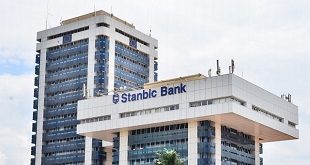Katureebe’s dilemma
Since the court dismissed the petition, Justice Katureebe and his team have faced more vitriolic attack and little praise. Part of the problem, some observers say, stems from the ambiguity of article 104 of the constitution and section 59 (6) of the presidential elections act. The article says that the Supreme Court shall ‘inquire’ into the petition.
While some legal experts say this article makes a petition a unique subject and gives the justices powers to even gather evidence on their own, others say the article limits the role of the court.
In 2006, Katureebe said that court cannot inquire into matters that are not in the petition. This position was supported by Justice Wilson Tsekoko, one of the three judges that voted to annul the election in 2006 even as Katureebe voted to dismiss the petition.
“It is basically a trial,” Tsekoko was quoted in Daily Monitor, “You hear the two sides and make a ruling. You can’t go and look up evidence. You can only check on the law.” But most of the critics say the court should have done more, given that although Mbabazi’s lawyers did not submit enough evidence, and taken what the lawyers call “judicial notice” of the evidence that was in the public realm. Court also faces another challenge in section 59 (6) which is also seem as open to two interpretations. One is that any confirmed illegalities should be enough grounds to annul an election.
The other, which the court, went with is that illegalities should have affected the results in a substantial manner for court to annul an election. In the two previous presidential elections, the majority on the bench followed this interpretation.
Jude Byamukama, the youngest at 31 years, of Mbabazi’s lawyers had put up a passionate submission inviting court to approach the matter differently. He wanted court to just base on anomalies, however minimal to dismiss the election. He cited Tsekoko who in 2006 said the section appeared to him to license cheating. Tsekoko said; “The provision appears to me to imply a license to cheat or flout the law but to do so in such a way that the cheating or flouting ought not to be so much as to a mount to creating a substantial effect on the result. The cheating must be such as can be tolerated by the courts.”
Byamukama asked Court to depart from its decisions in of 2001 and 2006, in which this Court held that a court cannot annul an election on the basis that some irregularities had occurred, without considering the 10 mathematical impact of the irregularities.
In the opinion of Counsel for the petitioner, Katureebe said in the ruling while referring to Byamukama, Court placed undue reliance on a quantitative test in interpreting the phrase “affected the result of the election in a substantial manner” and set an extremely restrictive and nearly impossible to meet test.
This thinking also is driven in part by a view that some of the effect of some of the offences like bribery and intimidation of opponents’ supporters during campaigns cannot be measured. In the ruling Katureebe sought to explain what guided his team.
Annulling of presidential election results is a case by case analysis of the evidence adduced before the court, Katureebe noted, on the one hand, the court must avoid upholding an illegitimate election result and on the other, it must avoid annulling an election result that reflects the free will of the majority of the electorate.
“In the matter before us, we find that there was noncompliance as proven in issues 1 and 2, but we are not satisfied that the noncompliance affected the result in a substantial manner,” he said. Not many had expected Katureebe to dismiss the election but many were surprised that all the nine gave similar reasons for their decision.
Another issue is that Katureebe’s team seemed to have failed to extensively question critical issues like the role of crime preventers, the hoes that were given out and the Shs. 250,000 that was dished out by Museveni’s team.
Critics also say that they find it strange that Katureebe’s team only found noncompliance on the seemingly small issues like where there was interference with the petitioners’ aspirant consultative meetings, late delivery of polling materials, the failure by Uganda Broadcasting Corporation to give the petitioner equal treatment with the 1st respondent, and the interference with the petitioner’s electioneering activities by some elements of the Police, some Resident District Commissioners and Gombolola Internal Security Officers. However, some see the criticism against the court as a direct result of the extreme polarisation that President Museveni longstay—30 years—in power has created.
A final sticking question on Mbabazi’s evidence is how one of Mbabazi’s lead lawyers, Fred Muwema, opted out of the case. Some speculated that he stayed away because he has a “tricky” relationship with the Supreme Court. The circumstances around which he left the team have raised a lot of questions as they followed the burgling of his law firm and that of Mohmed and the alleged disappearance of 300 affidavits of evidence.
 The Independent Uganda: You get the Truth we Pay the Price
The Independent Uganda: You get the Truth we Pay the Price



One comment
Pingback: Mbabazi’s evidence on Museveni election – Twinobusingye Severino Advocates